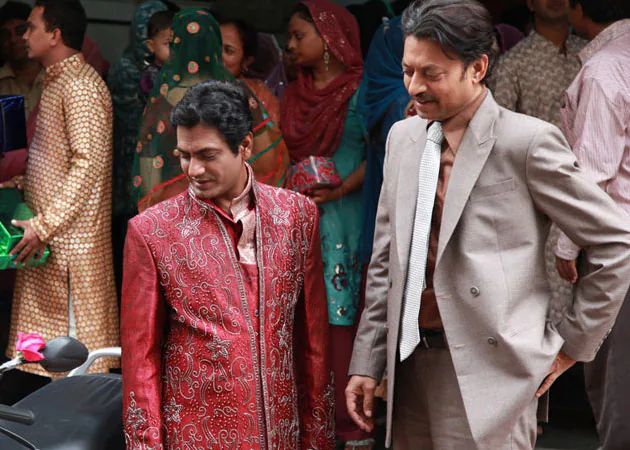It’s been five years since cinema lost Irrfan Khan — an actor whose works can easily be considered a masterclass in acting itself. Redefining the skill on screen with his nuanced performances and choice of roles, the iconic performer could speak volumes through his gaze alone. A bridge between Indian and global cinema, his passing left behind more than just a filmography that skimmed across languages, genres and borders. It left behind a vacuum in storytelling and a cinematic legacy — a space reserved for actors whose stillness spoke as much as their words did. And while the space is impossible to fill, Nawazuddin Siddiqui, is steadily proving to be a worthy successor of the cinematic legend. Interestingly, The Lunchbox brought together and celebrated the two in ways that only a cinema-lover can understand.

While the industry celebrates noise, Nawaz, like Irrfan, thrives in the quiet corners. He isn’t flamboyant, preferring the work do the talking and doesn’t create spaces to be heard. Instead, he thrives in subtlety and his strength lies in restraint — a rarity and often overlooked trait in modern cinema. He doesn’t imitate Irrfan, but his presence evokes the same emotional gravity, the same truthfulness and sincerity to the character and script.
 One of Irrfan’s most quoted lines comes from Life of Pi: “I suppose, in the end, the whole life becomes an act of letting go.” It’s introspective, fragile, and unforgettable — delivered with the kind of honesty that makes it stay with you. Nawaz echoes a similar gravitas in Manjhi: The Mountain Man, where he says: “Bhagwan ke bharose mat baithiye… kya pata Bhagwan humare bharose baitha ho.” The line — humble yet rebellious — is spoken with a conviction that echoes as a personal retrospection. It’s not performance, it’s presence.
One of Irrfan’s most quoted lines comes from Life of Pi: “I suppose, in the end, the whole life becomes an act of letting go.” It’s introspective, fragile, and unforgettable — delivered with the kind of honesty that makes it stay with you. Nawaz echoes a similar gravitas in Manjhi: The Mountain Man, where he says: “Bhagwan ke bharose mat baithiye… kya pata Bhagwan humare bharose baitha ho.” The line — humble yet rebellious — is spoken with a conviction that echoes as a personal retrospection. It’s not performance, it’s presence.

Another line that mirrors Irrfan’s emotional realism is from Bajrangi Bhaijaan, where Nawaz’s character remarks: “Nafrat badi aasani se bik jati hai lekin mohabbat nahi.” This is where Nawaz shines — not in the grand speeches, but in the moments that hold mirrors to society, to love, to human contradiction. The actor who holds his own in the movie irrespective of the grandeur of the superstar Salman Khan. 
Irrfan had the ability to let silence speak. Nawaz, too, builds tension and tenderness in the in-betweens—the pause before a word, the weight behind a gaze. They both make you believe that acting isn’t about showing, it’s about being.

In Nawazuddin Siddiqui, Indian cinema hasn’t found a replacement for Irrfan Khan — it never could. But it has found a torchbearer. Someone who, in his own way, reminds us of what cinema is truly capable of: empathy, sincerity, and the power of subtlety.











